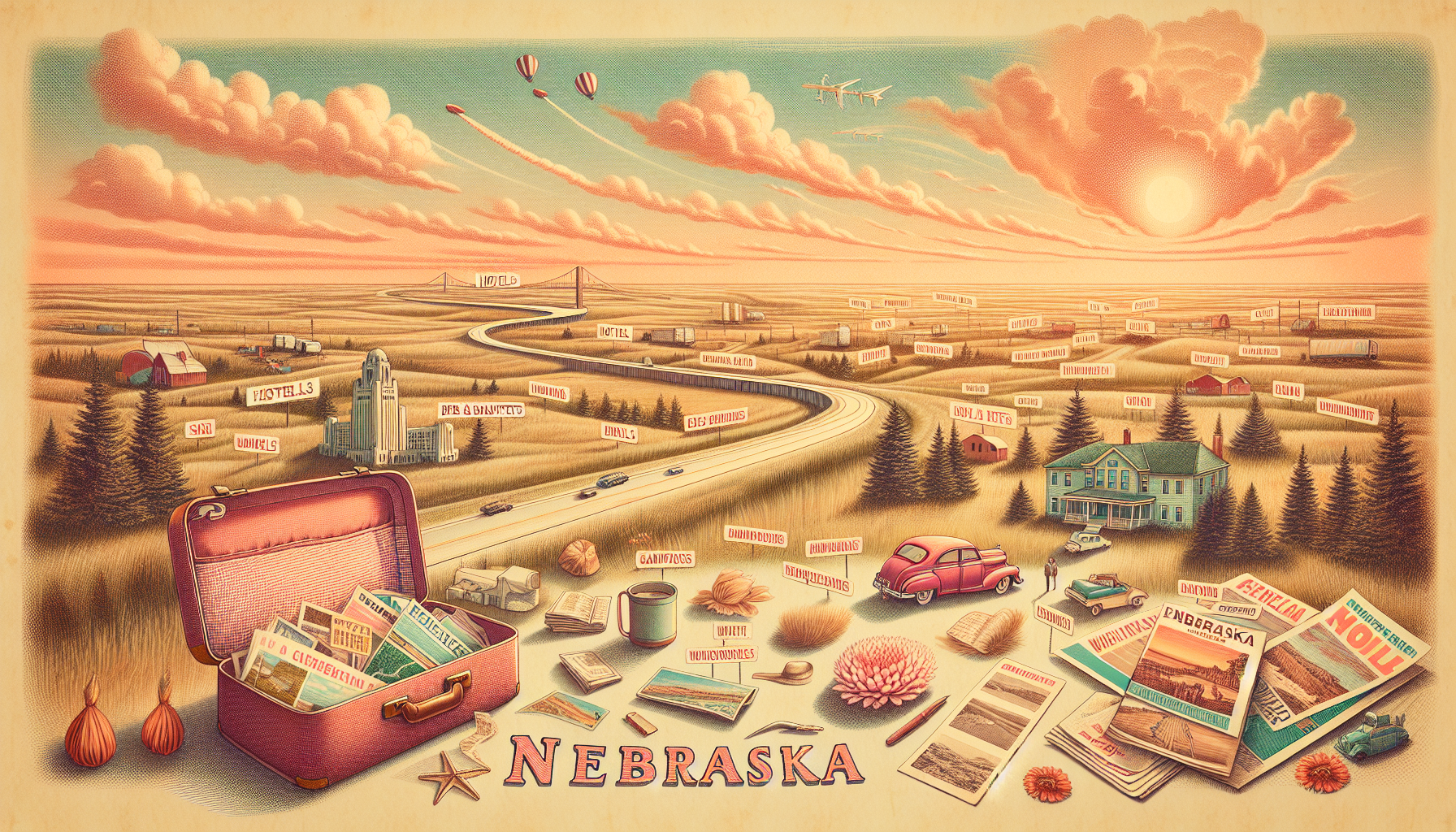Nebraska's Historic Chautauqua Sites: A Cultural Tour

Traveling through Nebraska offers a unique opportunity to delve into the state's rich cultural heritage, particularly in its historic Chautauqua sites. Chautauqua, a cultural and educational movement that originated in New York in 1874, was designed to bring entertainment, intellectual stimulation, and personal growth to rural areas. Nebraska, being a predominantly rural state, wholeheartedly adopted the Chautauqua movement, establishing several sites throughout its territories.
One of the earliest and most notable Chautauqua sites in Nebraska is the Chautauqua Park in Hastings, established in 1887. Located at 710 W 5th St, Hastings, this site was originally intended as a rural retreat for agricultural communities. The park hosted numerous Chautauqua events and concerts, drawing in crowds from all over the state. Although the original Chautauqua auditorium no longer stands, its legacy endures as a testament to the movement's enduring impact on Nebraska's social and cultural scene.
Another significant Chautauqua site in Nebraska is the Beatrice Chautauqua Grounds, situated at 3301 N 6th St, Beatrice. Founded in 1888, the grounds featured a 4,000-seat auditorium that played host to an array of national lecturers, entertainers, and politicians. One notable speaker was Helen Keller, who gave a lecture in 1916. Despite facing significant preservation challenges over the years, the Beatrice Chautauqua Grounds have managed to retain much of their original charm, offering an authentic glimpse into Nebraska's Chautauqua past.
The Chautauqua movement's reach was not limited to these major sites; many smaller towns and communities across Nebraska also established their own Chautauqua grounds. One such example is the Neligh Chautauqua Grounds in Neligh, found at 1404 3rd St, Neligh. From 1887 to 1918, the Neligh Chautauqua Grounds offered locals an opportunity to engage with renowned speakers, performers, and celebrities of the time. Local historians and preservationists have taken great strides in maintaining this piece of Nebraska history, providing invaluable insights for curious travelers.
As these sites reveal, Chautauqua in Nebraska fostered both education and entertainment. These events were vital not only for farming families and small-town communities but also for bringing together divided factions during periods of social change. When traveling through Nebraska, visiting its historic Chautauqua sites provides an enriching cultural experience that illuminates the lives of Nebraskans in the past.
These sites, along with others throughout the state, remind us that the Chautauqua movement played a significant role in shaping Nebraska's social fabric. A visit to any of these historic Chautauqua sites is more than just an excursion into Nebraska's past; it represents an experience that highlights the enduring power of culture, social interaction, and self-education.
In today's Nebraska, several preservation efforts are underway to secure the original Chautauqua grounds and restore some of their original luster. These undertakings demonstrate the continued reverence Nebraskans hold for these cultural institutions, testifying to the lasting legacy of the Chautauqua movement.
The preservation of these historic sites and the many memories they continue to foster allow today's visitors to form lasting connections with Nebraska's multifaceted cultural landscape.
One of the earliest and most notable Chautauqua sites in Nebraska is the Chautauqua Park in Hastings, established in 1887. Located at 710 W 5th St, Hastings, this site was originally intended as a rural retreat for agricultural communities. The park hosted numerous Chautauqua events and concerts, drawing in crowds from all over the state. Although the original Chautauqua auditorium no longer stands, its legacy endures as a testament to the movement's enduring impact on Nebraska's social and cultural scene.
Another significant Chautauqua site in Nebraska is the Beatrice Chautauqua Grounds, situated at 3301 N 6th St, Beatrice. Founded in 1888, the grounds featured a 4,000-seat auditorium that played host to an array of national lecturers, entertainers, and politicians. One notable speaker was Helen Keller, who gave a lecture in 1916. Despite facing significant preservation challenges over the years, the Beatrice Chautauqua Grounds have managed to retain much of their original charm, offering an authentic glimpse into Nebraska's Chautauqua past.
The Chautauqua movement's reach was not limited to these major sites; many smaller towns and communities across Nebraska also established their own Chautauqua grounds. One such example is the Neligh Chautauqua Grounds in Neligh, found at 1404 3rd St, Neligh. From 1887 to 1918, the Neligh Chautauqua Grounds offered locals an opportunity to engage with renowned speakers, performers, and celebrities of the time. Local historians and preservationists have taken great strides in maintaining this piece of Nebraska history, providing invaluable insights for curious travelers.
As these sites reveal, Chautauqua in Nebraska fostered both education and entertainment. These events were vital not only for farming families and small-town communities but also for bringing together divided factions during periods of social change. When traveling through Nebraska, visiting its historic Chautauqua sites provides an enriching cultural experience that illuminates the lives of Nebraskans in the past.
These sites, along with others throughout the state, remind us that the Chautauqua movement played a significant role in shaping Nebraska's social fabric. A visit to any of these historic Chautauqua sites is more than just an excursion into Nebraska's past; it represents an experience that highlights the enduring power of culture, social interaction, and self-education.
In today's Nebraska, several preservation efforts are underway to secure the original Chautauqua grounds and restore some of their original luster. These undertakings demonstrate the continued reverence Nebraskans hold for these cultural institutions, testifying to the lasting legacy of the Chautauqua movement.
The preservation of these historic sites and the many memories they continue to foster allow today's visitors to form lasting connections with Nebraska's multifaceted cultural landscape.
